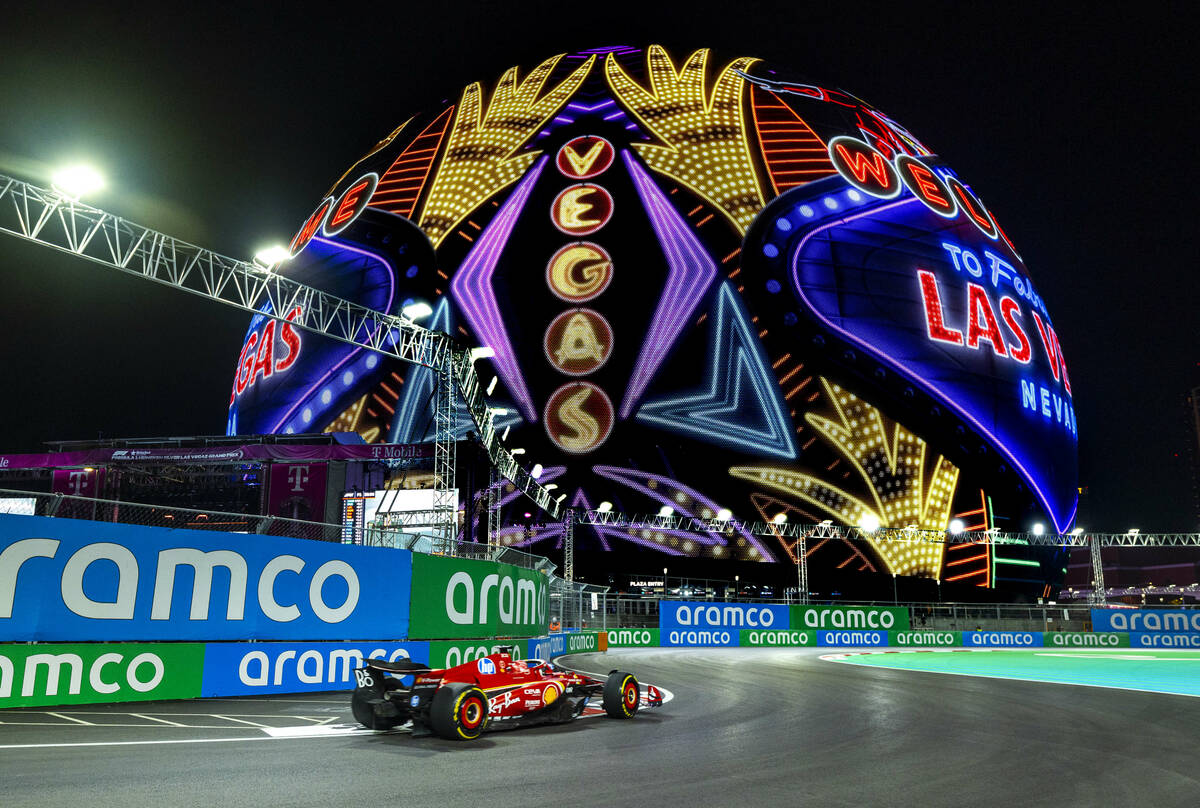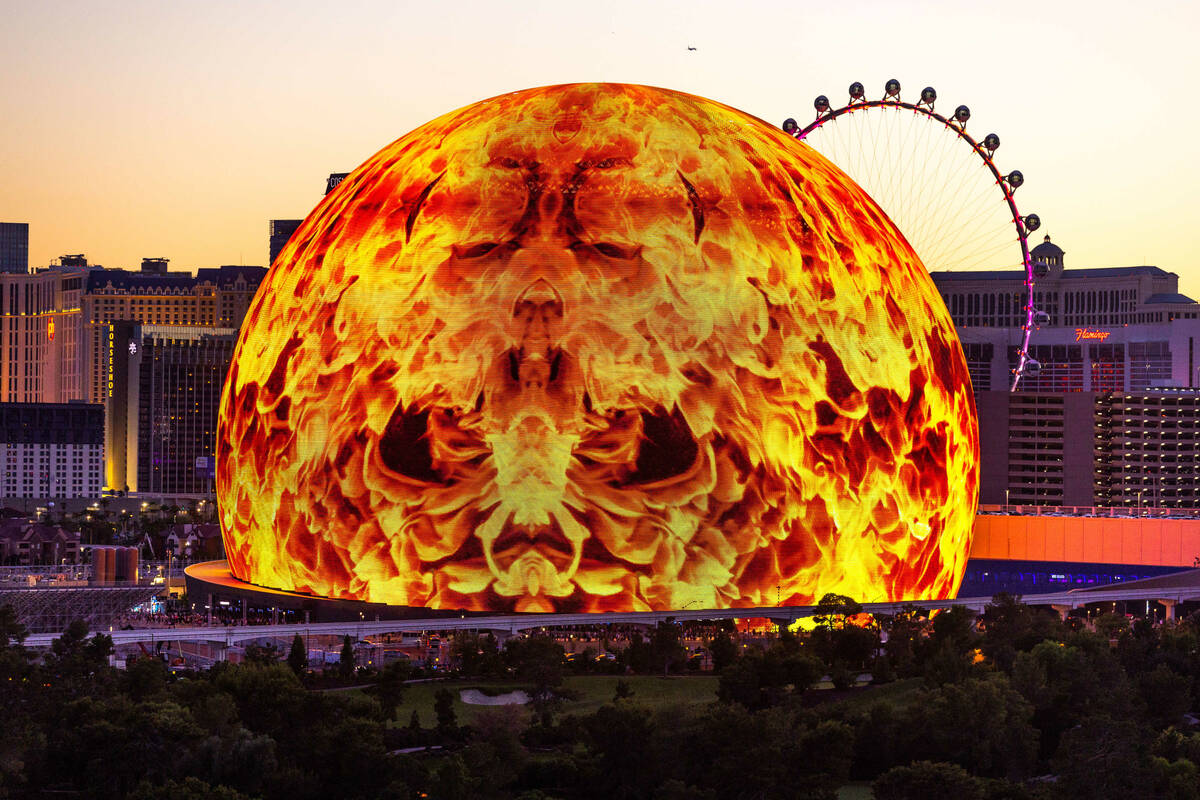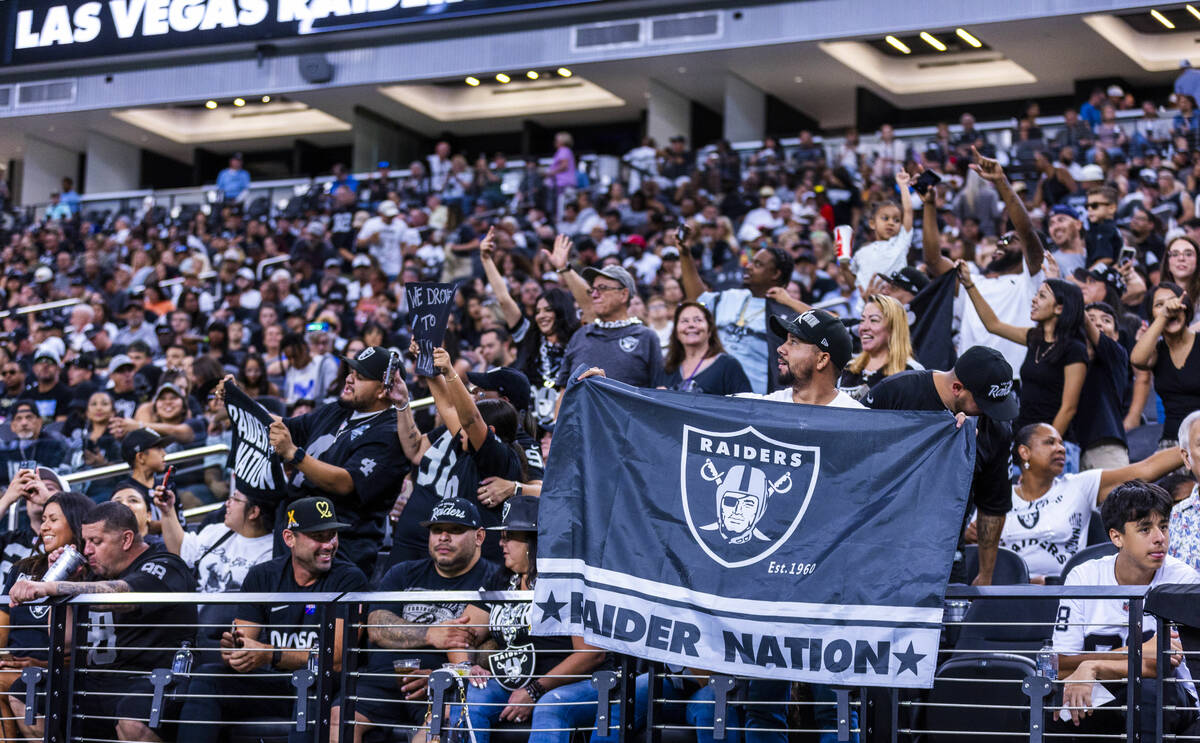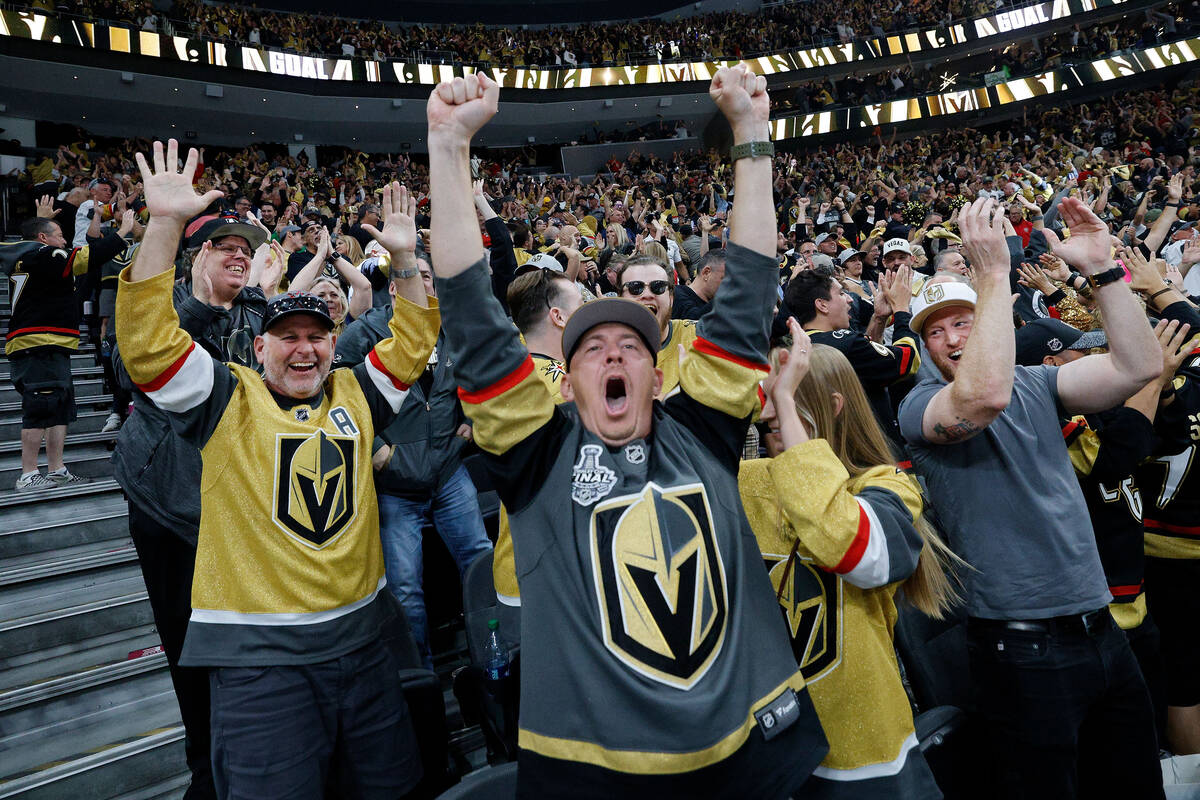Las Vegas has a wave of new entertainment jobs. But do they diversify the economy?
With concerts at the Sphere, Raiders games at Allegiant Stadium and Formula One racers flooring it, Las Vegas has upped its offerings outside casinos in recent years.
The surge of new entertainment provides more reasons to visit Vegas, or at least more places to spend money, and boosts a segment of the local workforce. But a big question remains.
Does it diversify Las Vegas’ tourism-heavy economy?
From a data standpoint, it doesn’t, as entertainment jobs are part of Las Vegas’ already-dominant leisure and hospitality sector. Experts who track the local economy say that more shows, sporting events and the like diversify and enhance the region’s main industry.
But they had differing views on whether this makes Southern Nevada, with its track record of economic booms and busts, more resilient to a broader slowdown — a pressing issue yet again this year as tourism slumps.
David Schmidt, chief economist with the Nevada Department of Employment, Training and Rehabilitation, said the question of whether increased entertainment helps insulate the economy can be viewed in a few ways.
On the one hand, it further diversifies the tourism sector, and with more shows and bigger venues, Las Vegas can host events that have more sustained demand.
For instance, fans may view a blockbuster concert in Vegas as a once-in-a-lifetime opportunity and travel here for the show.
On the other hand, Schmidt indicated, this still boils down to a type of spending that people can easily cut if they need to save money.
Tourism drop
Southern Nevada has long relied heavily on visitors traveling here to spend big eating, drinking, partying, gambling and going to shows and conventions to fuel the economy. With tourism sliding this year, America’s gambling mecca is again feeling the effects.
Around 22.6 million people visited Las Vegas this year through July, down 8 percent, or a drop of almost 2 million people, from the same seven-month stretch last year, according to the Las Vegas Convention and Visitors Authority.
Amid the slowdown, Las Vegas shed 4,300 jobs last month, and consumer spending has tumbled in some key ways, according to state data.
Las Vegas consultant John Restrepo, founder of RCG Economics, noted that entertainment has long been part of Southern Nevada’s DNA and enhances the tourism experience.
But it does “very little, if anything” to make the economy more resilient, he said.
Restrepo noted that Las Vegas is an economically volatile area and that it needs to become less reliant on discretionary spending if it wants more stability.
Southern Nevada’s entertainment-related workforce has surged over the past decade, but the region’s dependence on tourism still far outweighs the country as a whole.
As of July, some 34,500 people worked in arts, entertainment and recreation in the Las Vegas area, comprising 11.2 percent of the region’s leisure and hospitality workforce, according to federal data.
A decade earlier, 19,700 people locally worked in the entertainment fields, accounting for 6.9 percent of the leisure and hospitality sector.
Overall, as of this summer, the leisure and hospitality industry accounted for 27 percent of Southern Nevada’s workforce, compared with 11 percent nationally, federal data shows.
‘Tremendous driver’ of economy
Andrew Woods, director of UNLV’s Center for Business and Economic Research, said the boost in entertainment strengthens the tourism industry and highlights its evolution, as new offerings can attract new visitors.
But it doesn’t diversify the economy, he argued.
“In that sense we are not changing the equation,” Woods said.
The whole point of diversifying the employment base is to have sectors that are isolated from each other, he explained. That way, if one industry takes a hit, it doesn’t drag others down with it.
Las Vegas consultant Jeremy Aguero of Applied Analysis, who has worked with numerous sports organizations, contends this line of business does diversify the overall economy.
He pointed to UFC, noting the cage-fighting league has a video-production studio in Las Vegas and a performance institute for athlete training. The mixed-martial-arts organization is listed as a client on Applied Analysis’ website.
Overall, Aguero said that pro sports and other entertainment help make Las Vegas’ economy more resilient, adding that Southern Nevada is much better off today because of this expansion.
“This is a tremendous driver of our economy,” he said.
But does it make Las Vegas recession-proof?
“Absolutely not,” he said.
Gains in ‘low-skill’ jobs over past decade
Las Vegas’ economy was on solid footing in early 2020, with unemployment down to about 4 percent after a long, slow recovery from the Great Recession.
But when the pandemic hit, the Strip became a ghost town of shuttered resorts, tourism all but stopped, and job losses skyrocketed.
Las Vegas’ unemployment rate shot up to 34 percent in April 2020, the first full month of the shutdowns. Nationally, unemployment hit 14.8 percent that month.
As of July, Las Vegas’ jobless rate was 5.6 percent, compared to 4.2 percent nationally, according to seasonally adjusted data.
Former Las Vegas City Manager Betsy Fretwell said that tourism always bounces back from hard times and that many cities only wish they had the kinds of offerings that Southern Nevada has.
But locals can’t think this is the “be-all end-all,” said Fretwell, who this year was interim president and CEO of the Las Vegas Global Economic Alliance, a business-booster group.
Southern Nevada has made some inroads in recent years to diversify the economy, “but we haven’t gotten anywhere near our peers,” she said.
Several industries in the Las Vegas Valley have grown since the Great Recession, including tourism, health and medical services, and logistics, according to a report last year for the Governor’s Office of Economic Development.
Despite these gains, the local economy “remains much less diversified” than other metro areas in the Mountain West, the report found.
It also noted that much of the job growth during the prior decade was concentrated in “low-skill and low-productivity” jobs with limited opportunities for mobility.
‘The next thing’
Steve Hill, president and chief executive of the LVCVA, said that sports and entertainment will not diversify an economy to the extent that, say, manufacturing will.
But it does provide “a more stable base” for the tourism industry, he said.
For instance, when the Athletics move to Las Vegas, Hill said, they will play baseball games and employ people in their new stadium no matter how many tourists are here.
Still, boxing matches, UFC fights, football games, hockey games and other sporting events in Las Vegas often draw plenty of tourists.
In spring 2023, UNLV’s business research center reported that sporting events in Las Vegas generated more than $1.8 billion in direct output from out-of-town visitors in a recent year-long period.
The report came out before F1 started holding its now-annual Las Vegas Grand Prix in fall 2023, and before the Super Bowl was played at Allegiant Stadium in early 2024.
Hill said that the entertainment industry has helped Las Vegas maintain the visitation it’s had, and that when people travel here to watch football games or see concerts by superstars like Beyoncé or boy band BTS, “that’s really helpful for the city.”
Hill also said it grows the regional brand.
“It’s the next thing that Las Vegas is known for,” he said.
Contact Eli Segall at esegall@reviewjournal.com or 702-383-0342.
Public money
Nevada lawmakers have plowed mountains of taxpayer money into building big entertainment venues in Las Vegas.
In 2016, the Legislature approved spending $750 million in public funds to help finance construction of the 65,000-seat Allegiant Stadium, home of the Raiders, just west of the Strip.
And in 2023, the Legislature approved spending $380 million to help finance the Athletics' new baseball stadium on the Strip. The 33,000-fan capacity ballpark is under construction and slated to open in 2028.
The Nevada State Education Association opposed the ballpark-funding legislation, saying it amounted to a "giveaway to a California billionaire" — A's owner John Fisher — while Nevada school funding falls short.
Nevada, with the bulk of its population in Clark County, has a long track record as one of the worst-performing states in the nation for education.
"Nevada wants the A's, but that's why we get all the F's," the teacher lobby wrote.
The association tried other tactics to block the funding, including by going to court, but its efforts were thwarted.
— Eli Segall

























